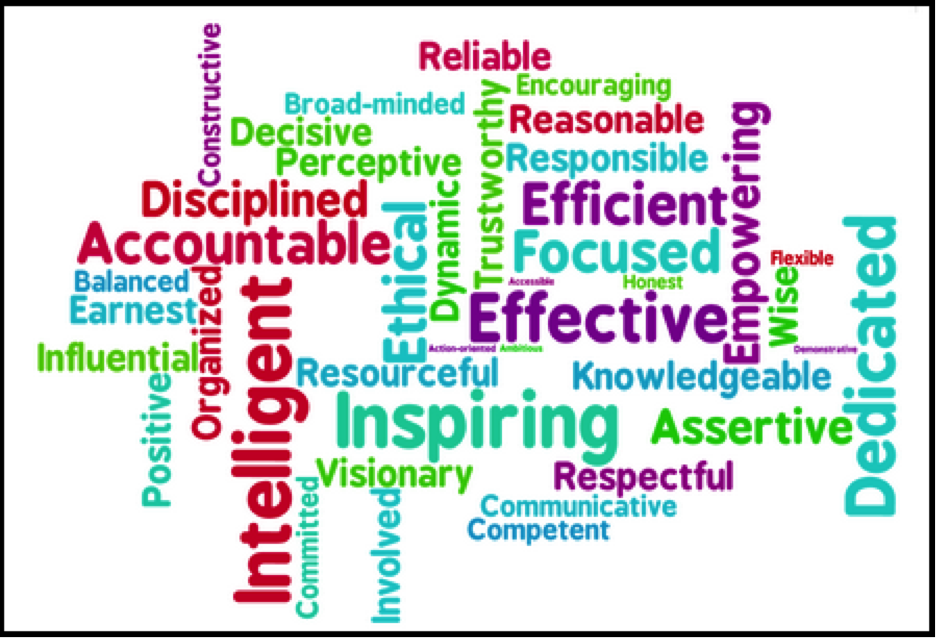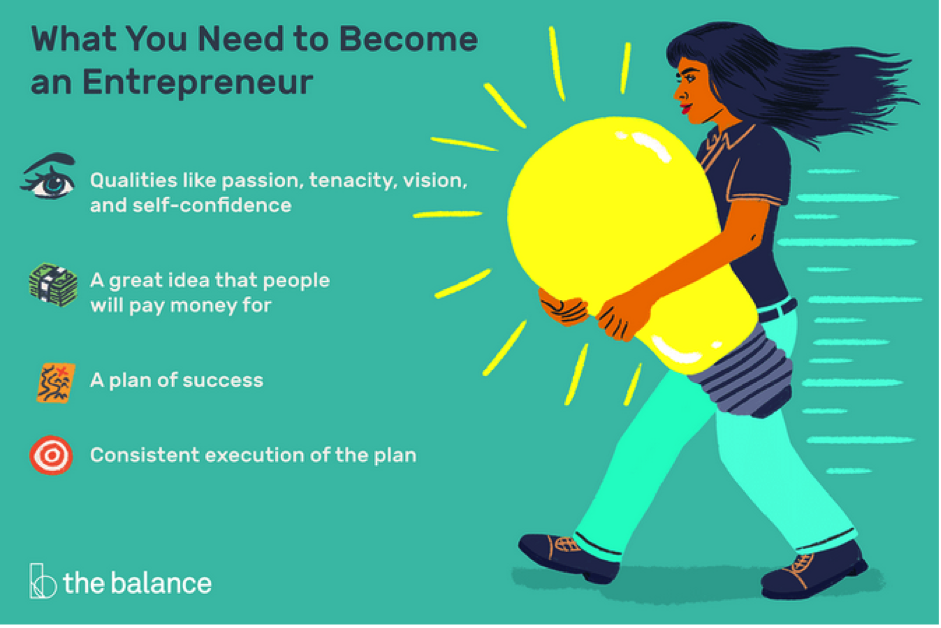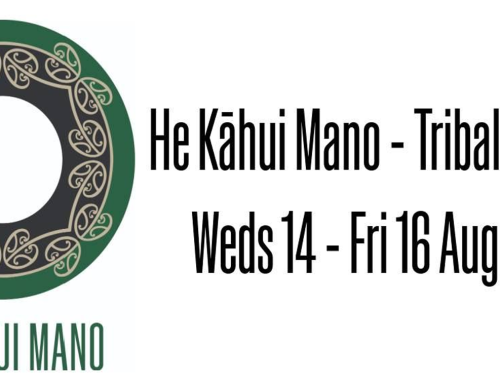Entrepreneurs-in-the-making: Are You Ready to Take the Leap?
As an entrepreneur, there’s a lot on the line.
Particularly when starting your first business, you face daunting questions: Do I have what it takes? Is it worth the risk? Should I really take the leap?
For me, being an entrepreneur has been my greatest joy. Creating a vision of the future, and building a company to make it happen.
In a new no-BS guide, my good friend and bestselling author of Traction, Gino Wickman, shares real-world experience to help you decide, once and for all, if entrepreneurship is right for you.
Based on business startups that have reached remarkable heights, Entrepreneurial Leap breaks down the six essential traits that every new entrepreneur needs in order to succeed.
Packed with first-hand stories and practical advice, Entrepreneurial Leapis a concrete how-to manual to drive results. Success for entrepreneurs depends on far more than just a great idea, opportune timing, and a generous serving of luck.
In this blog, I’ll be delving into the book’s three parts: namely— “Confirm,” “Glimpse,” and its advice in execution, “Path.”
Confirm
For “Entrepreneurs-in-the-Making,” or EIMs, it’s critical to learn from the more imperceptible qualities of those who have built—and sustained—innovative ventures.
But beyond emulating these characteristics, it’s equally vital to surround yourself with mentors, family members, teachers, and friends that hold you accountable to these learned habits and nurture those innate qualities vital for success.
To facilitate this process, in Part 1 of Entrepreneurial Leap, Gino draws from firsthand experience and fellow entrepreneurs to distill the 6 essential traits that unify today’s top venture leaders.
- Visionary: Perhaps one of the most innate traits—and therefore the most difficult to teach—is vision. Involving far more than mere ideas, being visionary requires connecting the dots between seemingly disparate business problems and unlikely tools. By reconceptualising problems at their most fundamental level, entrepreneurs can develop what Gino dubs a “sixth sense” in determining new business models and unexpected solutions.
- Passionate: Nowadays, the term “passion” is often nonchalantly thrown around as a sentiment akin to strong interest or personal investment. But a truly successful entrepreneur must be passionate about one’s product or service to the point that it fills an almost existential void. This involves an unshakeable belief in the value and necessity of one’s venture— one that fulfils and grants purpose.
- Problem-solver: Gino expresses the belief that entrepreneurship is innate: a trait of nature, not nurture. You are either born with it or not. As such, entrepreneurs must be hard-wired to approach and solve problems using novel methodologies. Challenges are exciting opportunities, not setbacks, and an entrepreneur’s natural response is optimism rather than discouragement.
- Driven: Many of us are driven by external rewards, a pay cheque, or the extrinsic motivation granted by a boss, parent, professor, or organisation. The best entrepreneurs, however, fuel themselves with an intrinsic motivation to competitively overcome failure after failure, matching enthusiasm with endurance and a sense of urgency.
- Risk-Taker: In many ways, risk aversion is the enemy of entrepreneurship. Another hardwired trait, a risk-loving mentality is key to rapid iteration, failing forward, and an entrepreneur’s investment in seemingly crazy ideas that revolutionise entire industries.
- Responsible: At the same time, however, entrepreneurs must be responsible in both risks taken and venture management. Always remaining accountable, the most successful business leaders default to looking in the mirror, not pointing fingers, and taking on the responsibility of owning and solving issues as they arise.
This rare combination of needed traits is part of the reason such a minuscule percentage of startups ever make it to the big time.
Today, 50% of businesses fail in the first 5 years, and of those that succeed, an extraordinarily low percentage ever scale. Only about 32% of second-generation entrepreneurs survive, and the statistics are even grimmer for those in the third- and fourth- generation (13% and 3%, respectively).
Yet through Entrepreneurial Leap, Gino aims to increase the success rate, helping Entrepreneurs-in-the-Making overcome common frustrations and hone the above skills.

Glimpse
In Part II, Entrepreneurial Leap paints a vivid picture of what it looks like to be an entrepreneur from the day-to-day.
Offering two scenarios—a day living the dream, and a day in the life of an entrepreneurial nightmare—Gino illustrates how to navigate each of these possible worlds.
Drawing from the stories of everyday individuals that determined to build ventures well outside their experience, Entrepreneurial Leap additionally lays out the numerous options facing EIMs when building a business: different industries and company sizes, products or services, B2B or B2C, one million dollars or a billion, premium-priced goods at low volume or high-volume production at low cost…
And to bring this pillar of the book full-circle, Gino delineates the 8 critical mistakes classically made by entrepreneurs, which oftentimes land them in the nightmare scenario:
- Lacking a vision;
- Hiring the wrong people;
- Spending too little time with one’s employees;
- Not knowing one’s customer;
- Charging too little for one’s product;
- Not staying true to one’s core;
- Not knowing one’s numbers;
- Not crystallising roles and responsibilities.
By connecting these key errors to a nightmare scenario, Entrepreneurial Leap gives concrete guidance for the everyday decisions of a new entrepreneur.

Path
In the book’s final instalment, Entrepreneurial Leap tackles action.
Backing the notion that entrepreneurship is not a process, but a set of traits, Gino discusses a number of issues, from the importance (or lack thereof) of college, to seeking mentorship.
With regard to the former, Entrepreneurial Leap explores the fact that only 44% of small business owners hold a 4-year degree or higher, probing the social benefits, biases and skill sets surrounding higher education.
Gino further delves into the how-to’s of finding one’s passion, demonstrating how pain, hardship, and personal experiences help entrepreneurs discover purpose and fight through failure.
And once you discover this passion, it’s not only vital to find strong mentors, but to adopt a 10-year mentality. In “Path,” Gino tackles both challenges, explaining the process of finding the right mentorship fit and internalising a habit of patience.
Along these lines, Entrepreneurial Leap offers 8 disciplines for increasing your odds of success once you’ve decided to take the leap:
- Clarify your vision;
- Decide if you are a “partner person;”
- Know that the bigger the problem you solve, the more successful you will be;
- Pursue feedback from customers and clients early and often;
- Know that your first plan will not be your final plan;
- Work hard, really hard;
- Take criticism and doubt from others with a grain of salt;
- Every night, focus and reflect on the vision that drives your business.
With these principles in place, Entrepreneurial Leap ultimately prepares readers for the 9 stages of tangibly building a business:
- Generating cash;
- Hiring an integrator;
- Discovering your core values;
- Holding yourself accountable;
- Communicating frequently with your employees;
- Having a plan B, C and D;
- Staying in your personal sweet spot;
- Preventing your business from getting away with you; and
- Capitalising on coaching, training, and mentorship.
Intended to make your entrepreneurial journey far less bumpy and assist in avoiding common mistakes, Gino’s guide to taking the leap covers a lifetime of growth, learning and motivation.
Are You an Entrepreneur-in-the-Making?
The following assessment is designed to determine if the characteristics of an entrepreneur resonate with you. Set aside 5 minutes to complete this assessment.
Scoring Your Entrepreneur-in-the-Making Assessment
This is not like a driving test, where you get a pass/fail result. It’s an assessment of whether you have the traits of an entrepreneur-based on your opinion, no one else’s. It will only work if you answer these questions of your own free will. Above all, you must be honest with yourself. If you are not completely honest with your answers, you are only hurting yourself.
Please read each statement and answer truthfully. Do you agree that the statement describes you?






